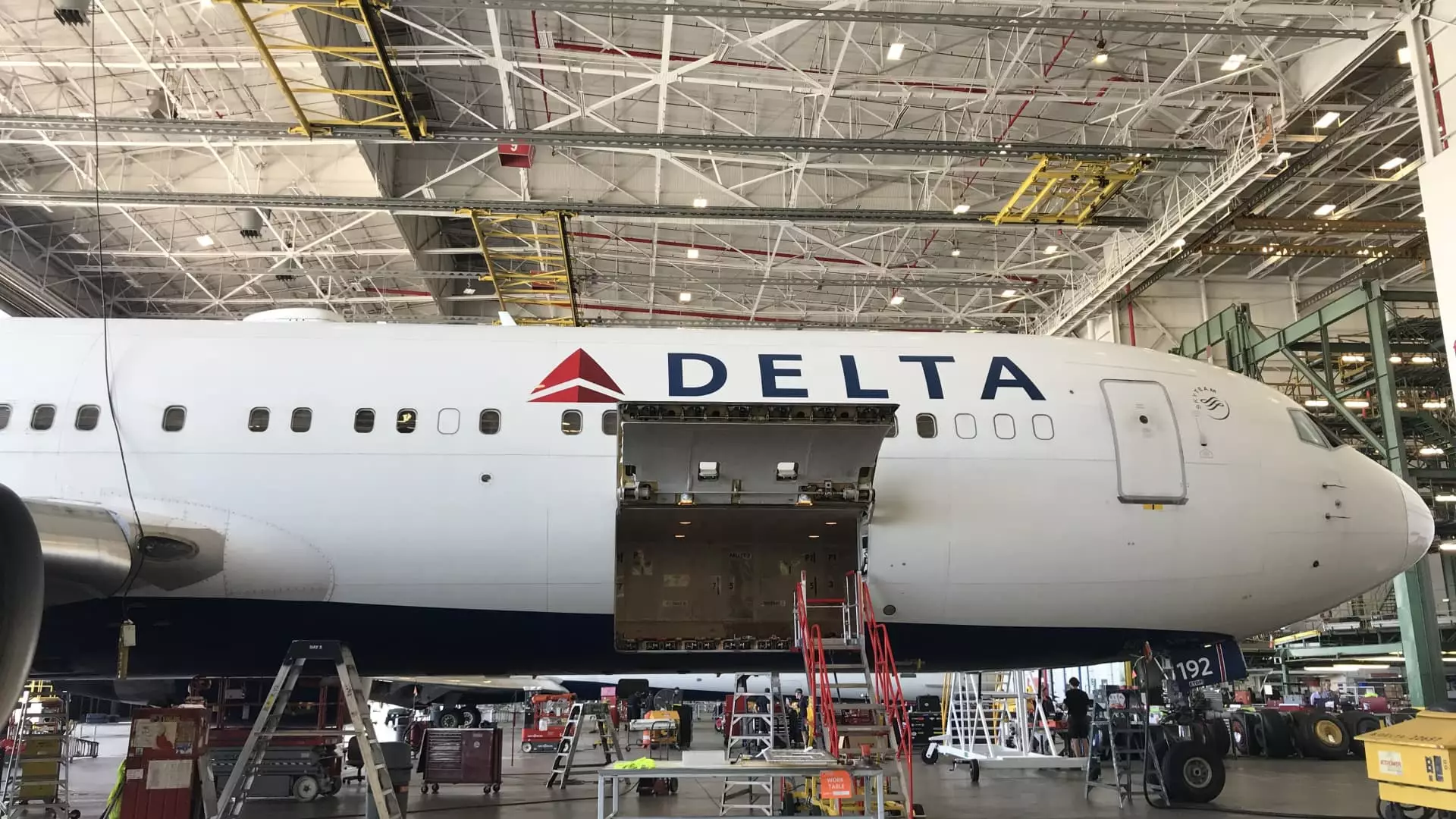Delta Air Lines is positioning itself for a robust fourth quarter despite facing potential headwinds from the upcoming U.S. presidential election. The airline has exhibited resilience in navigating a challenging environment, driven by year-end holiday demand and strong booking patterns. However, there are underlying concerns that could affect both demand and revenue growth as the election approaches.
The Atlanta-based airline has forecasted adjusted earnings per share (EPS) for the fourth quarter to land between $1.60 and $1.85. This projection not only surpasses Wall Street’s consensus estimate of $1.71 but also reflects a significant increase from the previous year’s adjusted EPS of $1.28. In terms of revenue, Delta anticipates growth between 2% and 4%, albeit slightly below the expected 4.1% increase. Such projections underscore Delta’s ability to attract travelers during the traditionally busy holiday season.
However, the airline acknowledges that there is a potential 1% revenue dip attributable to the political uncertainty surrounding the November elections. Historically, travel demand tends to soften during election periods, as consumers frequently adopt a cautious approach to discretionary spending. Delta’s CEO, Ed Bastian, emphasized this sentiment, indicating that consumers may hesitate in their investment decisions as they wait to see the election outcome. This behavior is not unique to Delta, with many industries likely feeling the ripple effects of electoral anticipation.
In examining Delta’s recent financial performance, the third quarter results present a mixed bag. While Delta reported adjusted earnings of $1.50 per share—slightly falling short of the $1.52 Wall Street forecast—revenue figures tell a more complex story. Adjusted revenue reached $14.59 billion, below the anticipated $14.67 billion. These figures reflect a nuanced operating environment, particularly in the wake of the CrowdStrike outage in July, which severely disrupted Delta’s operations. The incident is estimated to have cost Delta a staggering $380 million in revenue, showcasing the vulnerability of operations to external technological failures.
Bastian indicated that the airline is pursuing compensation from CrowdStrike and Microsoft for the outage’s impact. The situation serves as a reminder of the increasing reliance on technology in the aviation industry and the potential consequences when those systems malfunction. As Delta enters the fourth quarter, the hope for compensation looms as it could provide some financial relief amidst otherwise solid operational performance.
Despite the challenges, Delta’s net income rose by 15% year-over-year, reaching $1.27 billion for the quarter ended September 30. The airline attributes this growth, in part, to its continued strength in premium offerings. While passenger revenue remained stable, premium services have exhibited an impressive uptick, indicating a shift in consumer preferences towards higher-end travel experiences.
Furthermore, Delta’s operational strategy appears to be well-calibrated in light of recent market dynamics. Although the domestic air travel market remains oversupplied, there’s hope that the industry’s supply growth is rationalizing. Glen Hauenstein, Delta’s president, pointed out that this rationalization positions Delta advantageously as it heads into the peak travel period and looks ahead to 2025.
The airline plans to expand its capacity by 3% to 4% in the upcoming fourth quarter. This strategic move signifies confidence in sustained demand and reflects Delta’s proactive adaptability in a continually changing landscape.
Looking Ahead: Strategic Decisions in a Volatile Environment
As Delta navigates the uncertainties of the fourth quarter, it is clear that the interplay of strong demand, premium travel success, and the impending electoral events will play crucial roles in shaping the airline’s performance. Delta aims to achieve full-year adjusted earnings between $6 and $7 per share, a target that remains attainable if demand growth continues despite possible election-induced fluctuations.
Ultimately, Delta’s ability to balance opportunities with risks in the rapidly evolving aviation sector will be pivotal as it strives to maintain its status as a leading carrier. The coming months will test the effectiveness of Delta’s strategic decisions as they respond to both consumer behavior and external factors that influence travel demand.


Leave a Reply